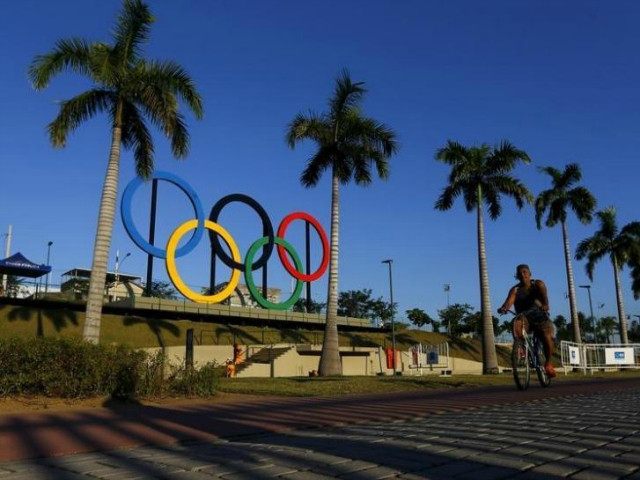The governor of Rio de Janeiro state, Francisco Dornelles, told the Brazilian newspaper O Globo on Monday that the Summer Olympics hosted in the state’s capital city may be a “big failure” due to the pervasive lack of funding for health and security infrastructure, leaving tourists and athletes exposed to crime and disease.
“I am optimistic about the games, but I have to show the reality,” Dornelles told the paper. “We can make a great Olympics, but if some steps are not taken, it can be a big failure.”
“Without security and no subway, there will be difficulties,” he argued. “How will people get to places without underground transportation? How will people feel protected in the city without security? We have to give proof that we are equipping security and the ready mobility for people to come to the country.”
Dornelles says the subway line designed to transport Olympic tourists to athletic venues is not ready and may not be ready by August. As for security, police forces only have enough money to pay for gasoline through this week. Without an emergency bailout from the federal government, Rio’s police department may be grounded.
Regarding health facilities, Dornelles described the situation as “calamitous.” He said, “The Health Minister is crying in my cabinet and, for me, that is very painful.” The health and security issues are deeply intertwined; last week, the hospital designated for the use of Olympic athletes and tourists was the scene of a dramatic shootout in which up to 15 drug traffickers broke into the hospital to free a drug lord known as “Fat Family.” A patient was shot dead.
Crime has become enough of a problem to directly affect athletes. Last week, a Paralympian was mugged in broad daylight while training in the city, a sign of the lack of fear criminals have that police will do anything to stop them.
Dornelles declared a “public calamity” last week, stating in a decree demanding federal emergency funding that the lack of money to pay for public services has “been causing severe difficulties in the provision of essential public services and can even cause a total breakdown in public security, health, education, mobility and environmental management.” He is waiting for Brasilia to expedite $900 million in emergency funds to pay for police and workers on Olympic venues.
Dornelles stated that the first priority for these funds will be paying construction workers completing Olympic projects. “Having a person working an entire month and not paying is a form of slave labor,” he told O Globo. He also attempted to explain how Rio de Janeiro got to the financial state it is in today: in short, too many social programs for a population that is working less and less. “Many retire too early. … There was a wage increase. … We were forced to greatly increase the number of police officers, teachers. … The state predicted an economy growing between 3% and 4%, when it was the opposite.”
He has previously warned that he expects to take “some pretty tough measures” to restore the economic viability of the state.
O Globo reports that the ruling party in Brasilia is not pleased with Dornelles’ vocal proclamations of failure. “There is a very, very high degree of irritation at Planalto Palace,” a blurb in the newspaper’s political blogs claimed this week. Planalto is the presidential palace, home to acting President Michel Temer while Dilma Rousseff completes the impeachment process. The Brazilian legislature voted to impeach Rousseff earlier this year, ensuring she would not be presiding over the Summer Olympics.
Since then, both the Brazilian federal government and the International Olympic Commission (IOC) have been working to attract tourists and keep athletes competing in the games, despite the barrage of negative publicity surrounding the Games. The IOC has claimed the declaration of fiscal crisis will have “zero impact” on the games and that the necessary subway line will be complete. Rio de Janeiro Mayor Eduardo Paes has claimed the decree is a way to ensure that Rio has “financial comfort” when administering the games, not a do-or-die measure.
In addition to crime and health concerns, Rio de Janeiro is home to some of the world’s most polluted water – which athletes are expected to swim through – and the largest outbreak of the Zika virus in the world so far. Zika has already scared a number of big-name athletes away from coming to Rio and competing, particularly in golf.

COMMENTS
Please let us know if you're having issues with commenting.